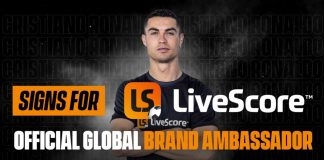The topic of sponsorship agreements between betting companies and sports clubs has taken increasing precedence in public discourse over the past year, as the review of the 2005 Gambling Act continues.
A prohibition of partnerships between teams, particularly highly visible football clubs, and betting operators has been cited as ‘the most likely outcome’ of the overhaul of the UK’s gambling regulations.
This has caused somewhat of a backlash from some elements of the football space, with Rick Parry, Chairman of the English Football League (EFL), stating that such a ban could have a serious negative impact on the finances of football clubs, particularly lower league teams in the aftermath of the COVID-19 pandemic.
Additionally, the Betting and Gaming Council (BGC) has continually defended the betting industry’s links with sports, highlighting how its member operators are ‘proud to support football’ and reiterating the sector’s £40 million annual contribution to the sport.
However, Daniel Ashville Louisy, Managing Director of Ashville Group, has observed that some clubs, such as QPR, are averse to gambling sponsorships and prefer to take endorsements from company’s operating in other areas, for both ethical and business reasons.
Speaking on a video released on his firm’s YouTube channel, Louisy – whose company specialises in construction, aggregate, waste management and ready mix cement – discussed the dynamics of Ashville’s partnership with EFL Championship club Queens Park Rangers (QPR), as well as football sponsorship in general.
“I spoke to QPR at length, and QPR for ethical reasons would prefer to not have a gambling company on the front of the home jersey,” he explained.
“Obviously, there’s a lot of children, and a lot of families and gambling isn’t the best place for them. QPR actually say they would take less money, because of the ethical reason, and the fact that betting companies are very volatile.
“A betting company can be seen to do extremely well one minute, the next minute they get taken over or they go into bankruptcy, and the new people involved no longer want to sponsor the club, and halfway through the season, you have to take the sponsorship off the front of the shirt.”
The Director also noted the benefits of small to medium-sized businesses (SMEs) partnering with lower league clubs, observing that Premier League sponsorships can often be too expensive for these firms.
“I feel the Championship is perfect for us,” he added. “If QPR are promoted, we’ll have to take a view, and think about how we’re going to do it, because we definitely can’t afford the front of shirt, and in the Premier League, there is no back of shirt.”




